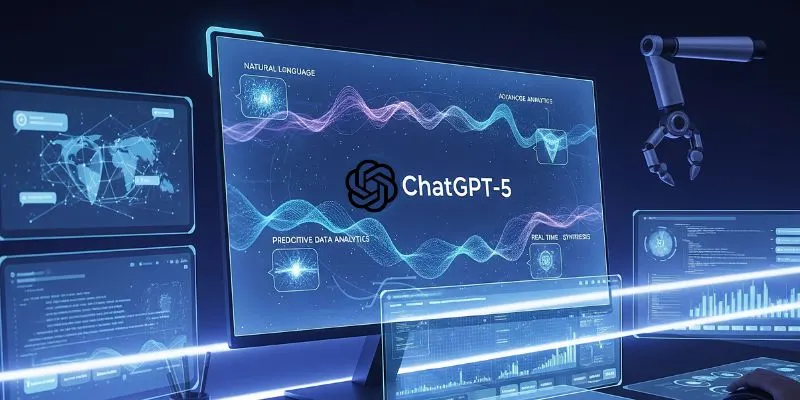By futureTEKnow | Editorial Team
In a tech landscape crowded with AI startups, few stories cut through the noise like that of Axiom, a pre-product company aiming for a staggering $300 million valuation. What sets Axiom apart isn’t just its ambition or the size of its fundraising round—it’s the unique blend of deep mathematical rigor and a laser focus on one of the most lucrative verticals: quantitative finance.
At the heart of Axiom is Carina Letong Hong, a math prodigy whose journey spans from Guangzhou, China, to the halls of MIT, Oxford, and now Stanford. Hong’s academic resume is nothing short of extraordinary: double major in Mathematics and Physics at MIT (completed in three years), a Rhodes Scholarship at Oxford, and now a PhD in Number Theory, Combinatorics, and Probability at Stanford. She’s published nine research papers, won the Alice T. Schafer Prize for outstanding female mathematicians, and is recognized for her work in both combinatorics and AI for mathematical proofs.
Axiom’s mission is clear: develop AI systems trained on formal mathematical proofs—not just pattern-matching language models, but engines capable of genuine logical deduction. The company leverages proof assistants like Lean, Coq, and Isabelle to build a dataset of machine-verifiable proofs. Their models are designed to predict intermediate proof steps, suggest lemmas, and verify mathematical statements, with a focus on domains critical to quantitative finance: probability, algebra, and number theory.
Instead of building another consumer chatbot, Axiom is targeting hedge funds and trading desks. The vision? Replace weeks of human-driven model validation with machine-checked proofs delivered via API, allowing financial firms to validate complex pricing formulas and risk models in minutes.
Axiom’s $300 million valuation—despite having no product or users—reflects a broader trend: investors are now looking for vertical AI applications with domain-specific expertise. Hong’s track record and Axiom’s focus on “formal math for finance” have caught the eye of major backers, including B Capital, which is reportedly leading the company’s $50 million Series A round.
Founder credibility: Hong’s academic and research achievements signal rare expertise in both mathematics and AI.
Niche focus: By zeroing in on formal proofs for finance, Axiom addresses a real pain point for quant firms, where mathematical validation is both expensive and slow.
Prototype demos: Early demonstrations have shown Axiom’s models can autonomously construct short formal proofs, impressing quant researchers who prioritize correctness and speed.
Market timing: As general-purpose LLMs saturate the market, specialized AI solutions are in high demand.
Axiom’s path is not without obstacles:
Data scarcity: There’s a limited supply of formal proof corpora, and converting traditional math papers into machine-checkable scripts is a labor-intensive process.
Generalization: Moving from known theorems to novel, finance-specific conjectures will require breakthroughs in zero- or few-shot reasoning.
Talent wars: Attracting top-tier mathematicians and ML engineers is a significant challenge in today’s competitive AI landscape.
Enterprise integration: Embedding a formal proof engine into existing quant workflows demands robust APIs and seamless tooling.
Axiom exemplifies a new breed of AI startup—one where deep domain expertise and technical rigor trump flashy demos or early user growth. If successful, Axiom could redefine how quantitative finance firms approach mathematical validation, accelerating innovation and reducing risk.
As Hong herself puts it, “We’re not building another chatbot that mimics solutions. We’re teaching AI to prove theorems. That’s a fundamentally different challenge—and one worth pursuing.”
For now, Axiom stands as a bold experiment at the intersection of advanced mathematics, AI, and high-stakes finance—and the entire industry is watching what happens next.

SpaceX aims to nearly double launches from Vandenberg in 2025, facing support from federal agencies but strong objections from the state and local communities.

Traditional Medicare will pilot AI-assisted prior authorization in 2026 across six states, focusing on high-risk outpatient services. Clinicians retain final say, but incentives and access concerns loom as CMS tests fraud reduction and “gold card” exemptions. Here’s what providers and patients should know.

OpenArt’s new “one-click story” compresses scripting, visuals, and edits into ready-to-post short videos—fueling viral growth and a fresh IP debate. We break down how it works, adoption signals, what’s next (multi-character, mobile), and practical guardrails creators and brands should follow to stay original and compliant.

OpenAI’s o3 swept the Kaggle AI chess tournament, defeating xAI’s Grok 4–0. The victory fueled the intense rivalry between Altman and Musk, reshaping AI benchmarks.

NASA and Google’s AI-powered Crew Medical Officer Digital Assistant enables autonomous diagnoses for astronauts on Mars missions, redefining remote healthcare for space and Earth.

Pinterest’s CEO confirms that fully agentic AI shopping is years away, as the platform invests in AI-powered tools to enhance discovery, inspiration, and personalized shopping experiences for millions.

Shopify’s new AI shopping tools are transforming e-commerce, letting agents and chatbots deliver smooth, personalized shopping and checkout experiences across platforms. Learn how these innovations reshape online retail.

Meta has acquired WaveForms AI, a startup pioneering emotion-detecting voice technology. Learn what this means for Meta’s AI voice ambitions and the future of AI audio.

Tracelight is revolutionizing financial modelling for finance professionals with AI-powered Excel tools that automate complex tasks, reduce errors, and unlock new analysis capabilities. Learn how this next-gen solution changes the future of spreadsheets.

China’s Lanyue lander completed its first major test, showcasing advanced engineering for safe, crewed moon landings before 2030. Explore how this milestone shapes the space race.

Microsoft rolls out GPT-5 across its Copilot suite, integrating smarter AI for enterprise and personal users. Discover new features, free access, and what sets this launch apart.

OpenAI’s GPT-5 is now live for all ChatGPT users. It brings faster, smarter AI with improved reasoning, expanded context, and safer outputs—marking a major leap in generative technology.
To provide the best experiences, we use technologies like cookies to store and/or access device information. Consenting to these technologies will allow us to process data such as browsing behavior or unique IDs on this site. Thanks for visiting futureTEKnow.